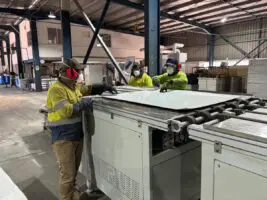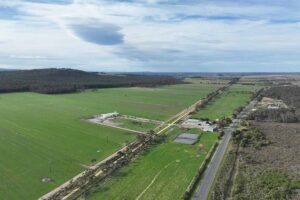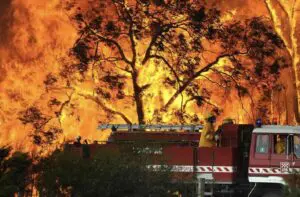Pacific Gas & Electric (PG&E), one of California’s major electric utilities, shut down its 1,122 MW Unit #1 at its Diablo Canyon nuclear plant last week just as the state prepared for a serious heat wave.
The news sent power prices higher on the wholesale exchange and required the state to burn more fossil fuels in thermal generation to make up for the lost power.
There are two units at the site, the second unit remained in service.
The plant’s outage couldn’t have come at a worse time both for the state and for PG&E. California’s is besieged with a severe heat wave, pushing up demand for air conditioning. Meanwhile the utility is asking for a controversial extension of its operating license for both nuclear units.
The plant may well be off an entire week, returning to service after the heat wave breaks.
Whatever happens with the plants outage, PG&E loses. If a power emergency is called, it becomes clear that nuclear is not dependable during a crisis. If no emergency is called, then it is equally clear that the reactor is not needed.
For the moment, the state is meeting its electrical needs and there have been no calls for extraordinary conservation measures.
News of the plant’s outage came to the renewables industry when French analyst, Bernard Chabot, asked California colleagues why nuclear generation had fallen so dramatically prior to the run up in demand. Chabot noted that nuclear generation had fallen by half, and thermal generation soared as the heat wave began.
Chabot had previously analyzed the nuclear industry’s performance for Renewables International in Nuclear – how big is it?
Based on experience in France during the killer heat wave of 2003, Chabot has described nuclear as “intermittent and unpredictable” for its unscheduled outages when most needed. In contrast, he notes that renewable sources of energy are “variable and predictable”. That is, generation from wind and solar resources do vary, but they vary in a predictable manner. Chabot’s assessment turns on its head the oft-repeated charge that wind and solar energy are intermittent and, hence, unreliable.
During the 2003 heat wave in Europe, several French reactors had to be taken off line because the temperature of their cooling water reached regulatory limits. Similarly, during the brutal European cold spell in early 2012, several French reactors were again out of service when most needed. France, subsequently imported electricity from neighboring countries, including Germany, to make up the difference.
The outage at PG&E’s Diablo Canyon Unit #1 during the present heat wave on the heals of the decision to permanently close two reactors at the San Onofre Nuclear Generating Station by Southern California Edison is certain to re-energize opponents of nuclear power in the Golden State.
This article was originally published on Paul Gipe’s Wind-Works blog. Reproduced with permission








